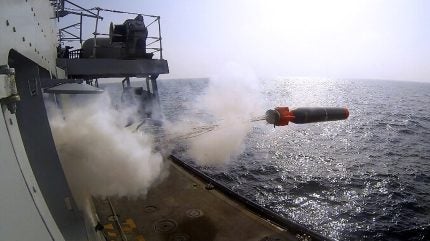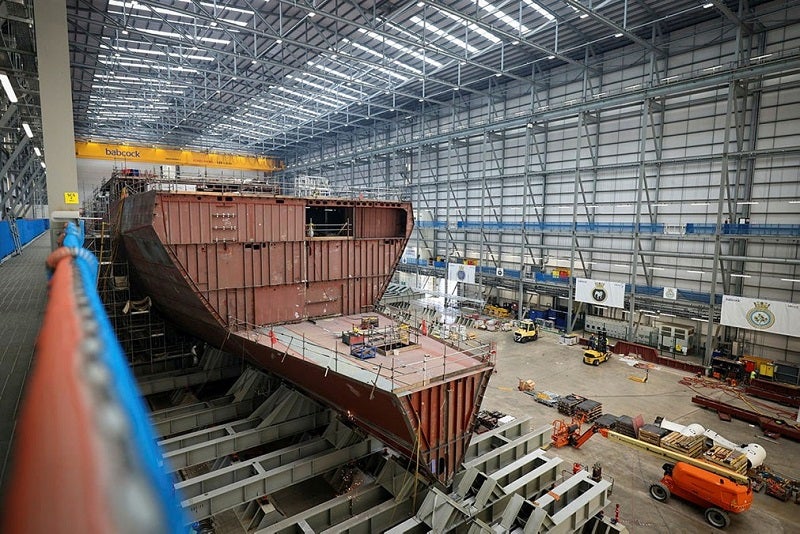
The UK Royal Navy is starting to approach industry to explore technologies and systems for its next generation Surface Ship Torpedo Defence (SSTD) system, having released a request for information (RFI) in June 2024.
Sonar 2170, also referred to as ‘Sea Sentor’, is the current SSTD system supplied by the British defence company Ultra Electronics. It is due to remain in service with Royal Navy surface combatants until 2030.
Sea Sentor is a passive, soft-kill suite designed to counter adversarial subsurface threats. Ultra designed the SSTD with a holsitic approach in mind.
Despite launching an open early engagement notice with industry, which will close on 2 August 2024, the Royal Navy will also consider options to maintain the current system.
The UK Ministry of Defence (MoD) had previously selected Ultra as its preferred bidder for its surface torpedo capability for another ten years in January 2019. This agreement was built on a number of contracts going back to 2004, when Ultra was originally selected to deliver its SSTD to the service. In that time Ultra has provided 16 SSTD systems to the MoD.
At the time Ultra noted that Sea Sentor is the world’s only in-service sensor-to-countermeasure SSTD providing torpedo detection, classification, threat evaluation and decoy capabilities. It is deployed with four navies and consists of a variable towed array, winch, countermeasure launcher, electronics unit and cotrol panel.
In August last year, the two parties extended their deal to include three additional SSTD fit-to-receive kits to be integrated on the Navy’s future Type-31 Inspiration-class frigates. Worth £886,000 ($1.1m), the contract stipulated to last a year, with a delivery timeframe between to conclude at the end of this month.

New requirements and options
Among the criteria specified in the RFI, the Royal Navy asked for
- Sensing capability
- Softkill and hardkill effectors
- Effector delivery mechanisms
- Processing
- Platform and combat system integration
- Platform and force level defence
“The latest torpedoes can re-engage the target after being spoofed by the soft kill measures in the initial pass,” noted GlobalData Defence Analyst Tushar Sudesh Mangure.
“To overcome the technological obsolescence and counter the latest torpedoes, several major defense manufacturers are now pitching their new generation of torpedo countermeasure suits featuring a combination of soft and hard-kill capabilities.
“For instance, Atlas Elektronik’s SeaSpider Anti-Torpedo (ATT) and Rafael’s TORBUSTER hard-kill torpedo countermeasure system are designed to neutralize the incoming torpedo by detonating their warhead or using the kinetic kill technique.”



